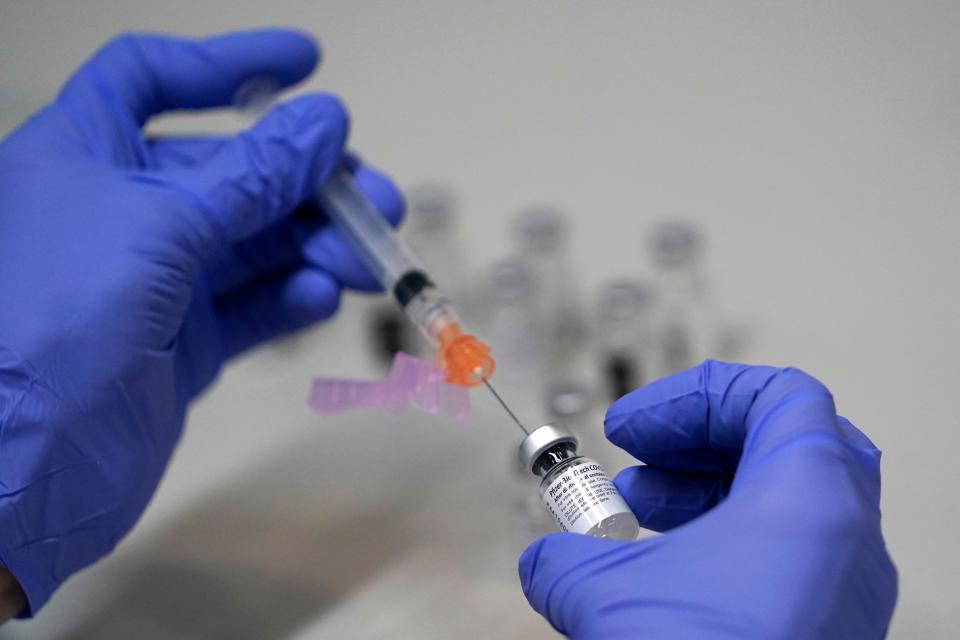Biden and Merkel can’t agree on vaccines. As an American in Europe, I’m on Merkel’s side

In the small waiting room of my Zürich doctor, birds sang through a curtained window after I finally got my first jab of the Moderna vaccine. My vaccine likely was made in Moderna’s facility in Basel. Yet it wasn’t available to me until this week because the US wasn’t exporting many vaccines. Again and again throughout the pandemic, vaccines have been made in European labs, shipped to the US for bottling, and then refused re-importation to European countries which are now in more need than America.
Because of my autoimmune condition, I was placed in “Group B”, which made it possible for me to get my jab this week before most of my friends of the same age who will wait till summer. This did not make me joyful. As I was observed for side effects, I felt surprising symptomsâ—âgrief, gratitude, and guilt. As an American living in Europe, the international “vaccine wars” have taken a heavy toll on me. Since my jab, Joe Biden and Angela Merkel have become increasingly opposed on this issue.
I hoped the US would support a lift of international patents like Biden recently announced. But the other side of the argument — such as that put forward by Dr. Michelle McMurry-Heath, president and CEO of the Biotechnology Innovation Organization, in the wake of Biden’s announcement — muddied my mental waters. McMurry-Heath and her compatriots argued that lifting patents could sabotage future biotech investments and provide information that wouldn’t actually be useful to developing countries in the long run. “Handing needy countries a recipe book without the ingredients, safeguards, and sizable workforce needed will not help people waiting for the vaccine. Handing them the blueprint to construct a kitchen that - in optimal conditions - can take a year to build will not help us stop the emergence of dangerous new Covid variants,” McMurry-Heath wrote in her statement. “The better alternative would have been to follow through on the President’s pledge just last week to make the United States the world’s ‘arsenal of vaccines’… And all of this [is foolish] while we have yet to fulfill our existing commitment to the international COVAX vaccine donation program.”
Like most — including the politicians in charge of some of the most powerful countries in the world — I’m conflicted. Terrible scenes are unfolding in India, and babies are dying in a human catastrophe in Brazil. Hospital beds, oxygen, ventilators and medications are in short supply. Many, like UN Aids, are warning of an impending “global vaccine apartheid” after we stem the tide of initial emergencies.
Rather than forcing a handful of corporations to lift international patents, why doesn’t the US ship excess vaccines or purchase them for countries in need like India and Brazil? Why don’t we get vaccines immediately to the ones who need them, as Merkel suggests? Ursula von der Leyen, the president of the European Commission, recently noted how the US isn’t widely exporting vaccines while Europe is. And according to Merkel, lifting patents will have serious consequences on future vaccine production. At the end of the day, investors give money to science to make money. So how will the next vaccine, in the next pandemic, be funded if Biden’s only commitment to vaccinating the world is through patent waivers?
After my jab, I felt nauseated by the fact that 1 in 4 privileged Americans with access to a vaccine doesn’t even plan to use theirs. Maybe the folks pondering whether to get a vaccine could give twice as many jabs to the Go Give Campaign for others who stand in line, desperately wanting one.
“You need to sit there for fifteen minutes,” the nurse said. “So we can be sure you’re okay.”
I’m not okay, I thought. The hole in my arm feels more like a canyon, a hole in the earth that millions of people are falling through.
Some of us want to claim it’s all over after the shot. We want to believe we have no side effects. We put our bandaged arms on Facebook, saying:hell yeah. We’ve lived! We get ready to return to the office. Can we still book hotels? Are there beaches open? I have seen these questions on Facebook intertwined with death counts and fires in hospitals. It’s beyond surreal.
The nurse returned to the waiting room. “How do you feel?” she asked.
Not okay —I wanted to sayâ—âis there a cure for the conscience?
People say survival is earned. But all I did this year was to stay in my safe home. The nurse didn’t notice my wet eyes, or maybe she’d already seen too much emotion in that dim room where patients had rushed in, afraid, this year.
On the way out, I passed a well-dressed blonde businesswoman waiting for her jab. She giggled like she’d won the lottery through her mask. I was happy for her and for everyone who gets to feel the vaccine. But as I left the building, my tears streamed. I lowered myself into my car, pandemic memories drowning in the chorus of bird calls. I told myself to be glad for the music, for all the side effects. I want to remember this year and everyone else still suffering. And I know that, for most in the world, the fight isn’t over: it’s only just beginning.
Pass on the privilege of vaccination by donating to the World Health Organization’s Go Give One campaign
Read More
EU says UK is breaking Brexit trade deal amid Jersey fishing row
After being starved of art, I’m dizzy with excitement that museums and galleries are open soon
The Tories shouldn’t get too carried away by their brilliant victory in Hartlepool

 Yahoo Movies
Yahoo Movies 